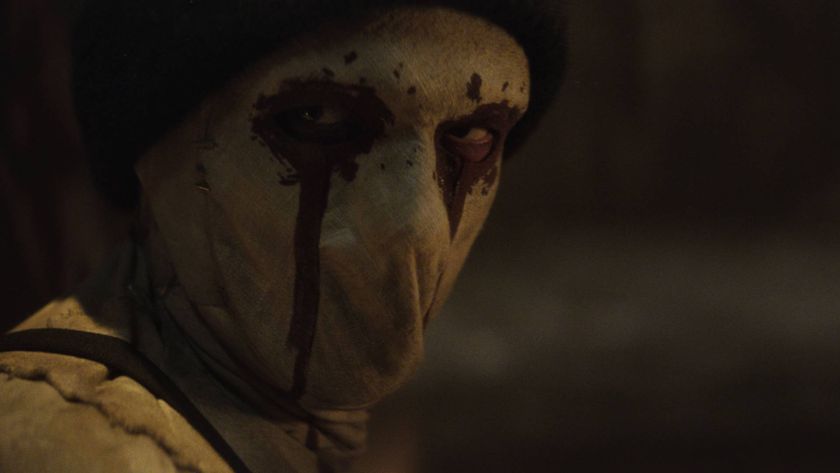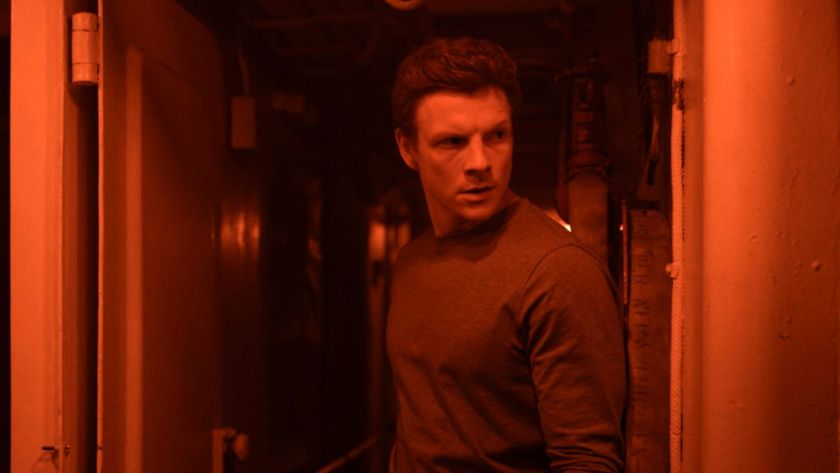PURE GOLDER Is Fringe Losing Its Edge?
None
SFX.co.uk editor Dave Golder thinks it’s not just Peter that’s gone missing. Season four spoilers

I’m glad I’m not reviewing Fringe at the moment. Not that I’d be sticking the boot in. It remains a perfectly watchable show, and Walter remains one of then most fascinating characters currently on TV currently. But four episodes into the fourth season and I’m finding it a increasingly essential piece of viewing each week. I’m just getting a little bored with it, to be honest.
And the reason I’m getting bored is also the main reason why I’m glad I’m not reviewing it. Because my problems with Fringe are what it’s not doing, rather than what it is. And when you start complaining about a show not doing what you want it to do, you start to sound like a crazed fan who thinks they own the show; and any suggestions you put forward about how you would do it border perilously onto fanwank territory.
But I’m not reviewing the show, and this column is my chance to get things off my chest, and I can’t let the cool, analytical side of brain put the mockers on the emotional side of my brain any longer. So indulge me. Disagree with me, by all means, but indulge me.
The strange thing is, I’m not missing Peter. Nope, I’m not turning into some ranting ’shipper furious that Fringe has temporarily put the kibosh on any Olivia/Peter shenanigans. That doesn’t bother me one bit. What I am missing is in-depth exploration of the impact of his disappearance and the resulting clash of worlds.
When season three finished I was stupidly excited about the way things seemed to be going. With Peter dragging over there over here (or over here over there, depending on your universe of origin) it looked like season four was going to kick off with a string of episodes where we’d get Walter versus Walternate, Olivia trying to outsmart Bolivia, and possibly maybe even some Astrid on Astrid action (not that I ever daydream about such things…). I thought the two disparate Fringe division would be butting up against each other, forced into an uneasy alliance. I thought we’d be getting episodes that explored the differences between the worlds, and the difference between our universe without Peter to one we knew with him. There seemed to be so many rich veins of plotting gold to mine.
Questions, questions, questions
But four episodes in, and only one has even vaguely dealt with those issues – the second, in which the two Olivias are forced to work together (and my favourite by a long shot so far this season). Apart from Olivia, we haven’t seen anyone else meet their doppelganger, and the timeline of the Peter-less world has barely been touched upon. Oh, there have been scenes here and there, but it almost feels like lip service.
Sign up to the SFX Newsletter
Get sneak previews, exclusive competitions and details of special events each month!
Instead, Fringe seems happy to go back to the “mystery of the week” format, and to be honest, none of the mysteries so far have been in the A-list of Fringe bizarreness. Sentient spores and magnetic blue anomalies feel woefully banal for a series that has boasted men with heads in their stomachs, porcupine mutants and made scientists turning women into steampunk puppets.
It’s almost like, as with Lost , the writers seems to be wilfully avoiding the questions in the audiences minds rather than addressing them. Admittedly it’s good for a show to do the unpredictable – and they do have the excuse that the characters wouldn’t be questioning these things, because they are a part of this universe, altered though it is – but, to me, Fringe seems to be taking unpredictable steps backwards as opposed to audacious steps forward.
Let’s hope I’m worrying far too early, and that the series will enthusiastically embrace all these potentially fascinating developments inherent in the new cross-worlds format. But for the moment at least, I’m sticking with it mainly based on past glories.
And Walter. There’s always Walter.

Dave is a TV and film journalist who specializes in the science fiction and fantasy genres. He's written books about film posters and post-apocalypses, alongside writing for SFX Magazine for many years.











